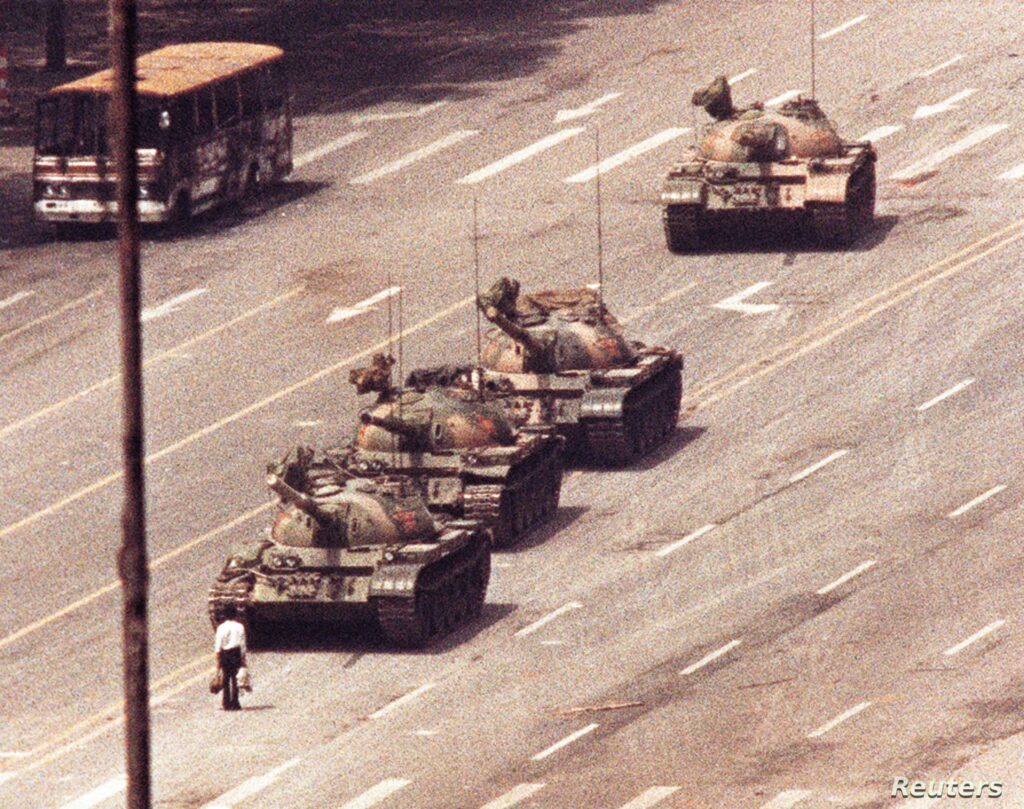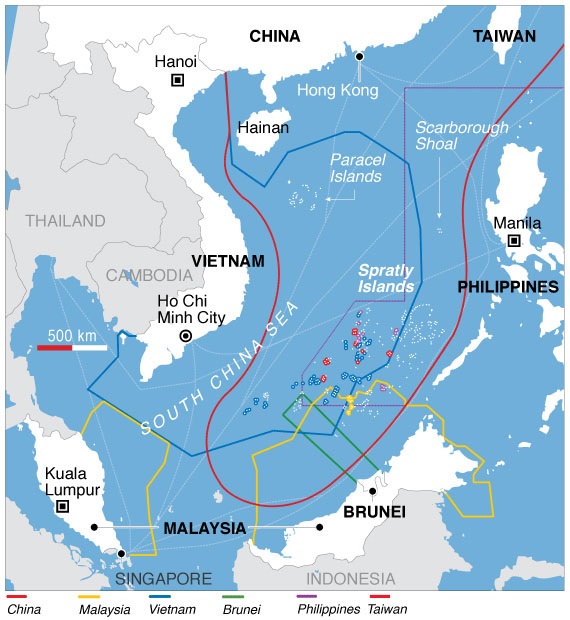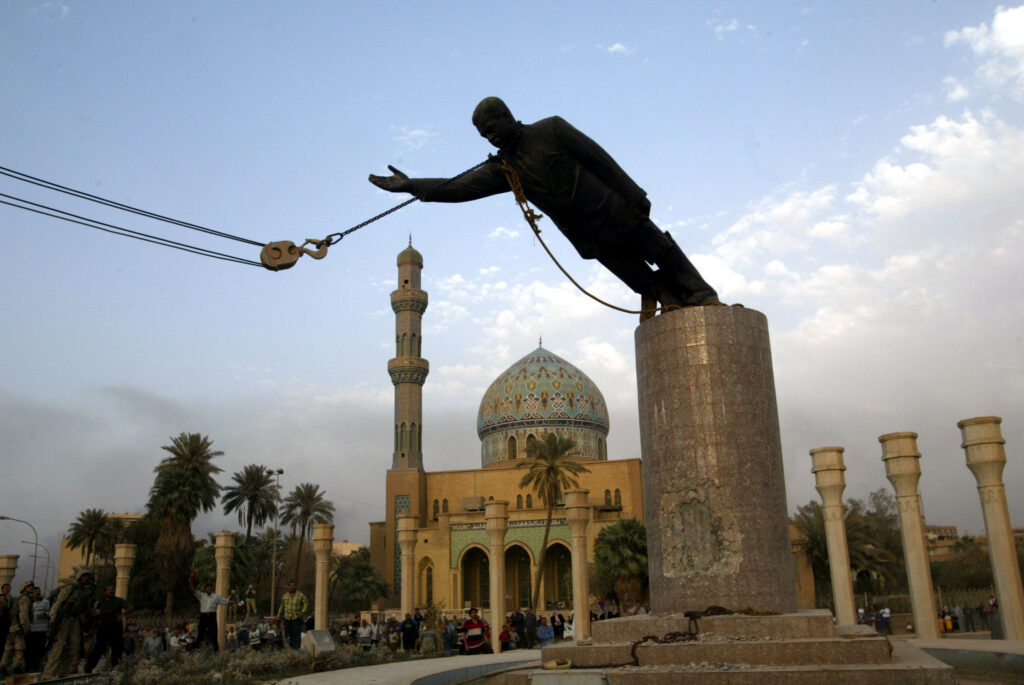The Hong Kong Ultimatum
Protests in Hong Kong have become riots in recent days as unrest escalates. Hong Kong police have tried to disperse the protestors gently. The Hong Kong government has handled the affair incompetently. Protestors are concerned about a bill proposing extradition of prisoners to the Chinese Communist government, election fraud, and the lack of affordable housing, among other problems, many stemming from the transfer of Hong Kong back to Chinese jurisdiction in 1997. Fears are rising that the People’s Liberation Army (PLA), the Chinese military, may intervene. The Chinese government recently issued a warning that they will step in to restore order. Could Hong Kong be the scene of another Tiananmen Square massacre? The United States should not take the chance. The Trump Administration has the ability to prevent such a blood bath by issuing an ultimatum in advance.
Hong Kong on Fire
In a series of three treaties following various conflicts between Great Britain and China, Britain gained Hong Kong Island and successively more territory including several smaller islands and the Kowloon peninsula for the purpose of continuing an opium trade that was illegal in China. These one-sided treaties promised the return of Hong Kong to China in 1997 (99 years after the 1898 treaty). While those treaties were signed with the Chinese Empire, a government that ceased to exist in the early 20th Century, the United Kingdom honored its agreement with the current Chinese government, and in 1997 Hong Kong was returned to Chinese control. In theory, China agreed to allow Hong Kong to retain substantial autonomy and its democratic institutions. In practice, China has slowly begun tightening the noose around one of its several wayward provinces.

In recent years, President Xi Jinping and the Communist Party have been cracking down on dissent. Several high profile political figures and entertainers have been disappeared, media restrictions tightened, and the persecution of minorities (Christians and Muslims in particular) intensified. The Chinese government sought an extradition bill that would theoretically allow Hong Kong dissidents to be jailed on the mainland. This was the metaphorical Stamp Act that set off the protests, but Hong Kong residents have many other underlying concerns. Their democracy has been undermined, their economy mismanaged, and the common people have not prospered. Housing has long been a concern in the cramped Island City-State, but prices have risen to excruciating levels due to insufficient new construction. The housing crisis has also been exacerbated because many people have flocked to Hong Kong and the former Portuguese colony of Macau seeking greater freedom; no one wants to live under socialism. The Hong Kong government continues to try to walk the tightrope between pleasing Beijing and pleasing its populace, but the electorate cannot hold their leaders accountable effectively when democracy is hampered.
Toward Resolution
The Hong Kong government has essentially killed the extradition legislation, but they continue to bungle the matter by not making a clear statement that the bill is dead. (Click here to see video of the protests) Moreover, they have no answer to the larger questions protestors raise. They can neither mollify the populace nor convince them of their sincerity. As the situation has spiraled out of control with mild violence and the use of tear gas and pepper spray, the question of Chinese military intervention looms still larger. If the Chinese military steps in to quell the protests, there will be violence and it could escalate quickly. The Chinese government recently issued a statement that they will intervene. In what may very well help to raise tensions to that level, a general strike is coming of workers from several sectors from banking employees to construction workers. How will the Chinese government respond to this industrial action?

In 1989, pro-democracy student protestors crowded into Tiananmen Square to demand greater freedom. It was a year in which such protests were erupting throughout the communist world: Poland, Czechoslovakia, Romania, and East Germany also saw protests. Those governments quickly crumbled, followed shortly by the USSR. But in China the army sent in tanks and killed untold hundreds, perhaps thousands of protestors.
Thereafter, China responded to the end of the Cold War with greater pragmatism than their Soviet counterparts: China slowly allowed some capitalism and essentially converted from a communist system into a sort of fascist (national socialist) government. More so even than the regimes of Mussolini, Franco, or Hitler, the Chinese have a dual system wherein a semi-capitalist economy operates within an oppressive socialist dictatorship that carefully controls political dissent. This awkward dual system worked so long as China prospered. Their economy grew in leaps and bounds. They manipulated their currency and trade relationships, stole intellectual property, subsidized labour and raw materials, and generally cheated to encourage growth, all the while growing their military. China fields the world’s largest air force, a navy that includes ballistic missile submarines and aircraft carriers, and a large and mobile army.
But the Chinese economy has become clumsy and has been weak in recent years. Fearing internal dissent, China has sought external confrontation by building artificial islands in the South China Sea and trying to claim the large body of water for itself. The South China Sea is a thoroughfare for nearly $5 trillion of annual trade in goods, much of it from China’s competitors. While the United States continues to confront China over the matter and refuses to recognize their control, preferring the freedom of navigation of international waters and the competing claims of regional allies like Vietnam, Malaysia, and the Philippines.

The United States (US) seeks to defend the freedom of peoples around the world. We seek peaceful and profitable trade with all peoples and the general enrichment of mankind through capitalism. Elected, accountable, democratic governments, answerable to their constituents are essential to this prosperous world. As a nation we can ill afford to allow tyranny to putrefy where freedom once reigned.
Hong Kong is one of many areas of contention between the US and China. The US protects Taiwan, which China claims as its own, but has not formally recognized Taiwanese independence. The United States has never recognized or accepted China’s military occupation of Tibet and the treatment of minorities in China (such as its Muslim Uighur population that lives in the western province of Xinjiang). China’s human rights record is abysmal, even since it transitioned from its more centralized communist system. The one-child policy was strictly enforced with forcible abortions, populations were forcibly relocated to the cities, and religions ranging from Falun Gong to Christianity have been persecuted.
Then there is the matter of China’s cheating of its trading partners, chiefly of the United States. President Trump has confronted China on this matter by seeking a more balanced trade deal, one which the Chinese have delayed and refused to finalize. China has recently announced that their firms will cease to buy agricultural equipment from the United States as part of tensions over the trade deal; leading to fears of an escalating trade war. China seems to think it can wait out the Trump Administration. They will certainly have help from their collaborators in the west: Google, Twitter, and much of big tech. The President, who is likely to be reelected in any event, has sought to bring these negotiations to a head. Generally speaking, the US wants China to back down. China cannot be permitted to continue to cheat its trade partners, to seize the South China Sea, or to oppress the people of Hong Kong. The US economy has struggled with the issue and talk of stalled trade talks and fears of a broader trade war with China can send stocks into decline. But the US needs a fair trading partner, not an aggressive, human rights abusing tyranny bent upon regional domination.

Could it be that Easy?
In 1980 the Soviet Union was faced with serious protests from the religious labour movement Solidarity in Poland. The movement had gained strength and had forced the puppet Polish communist government to make concessions. Soviet leaders prepared to invade Poland and massed their troops along the Polish border. One single event caused them to cancel their invasion. In November, 1980 the American people elected Ronald Reagan as president defeating the bumbling appeaser Jimmy Carter. The Soviets so feared Reagan’s administration that they called off the invasion of Poland and the suppression of Solidarity as soon as he had been elected, before Reagan had even taken the oath of office. Incidentally, the Iranians also agreed to free the American Embassy hostages they held before Reagan took office. A strong President struck fear into the enemies of freedom and they chose to back down. Within a decade the communist governments of Eastern Europe were gone. The Berlin Wall had been demolished. On the other hand, had Solidarity been quashed, communism might have persisted there for decades longer. So it is in Hong Kong, if these protests are violently put down, Hong Kong will be lost to the free world indefinitely. This is a scenario the horrors of which are ineffable, they defy description.
Could this the United States similarly weaken China by showing resolve and forcing them to back down? Possibly. Unfortunately, although we have a strong administration in the District of Columbia, it is perpetually undermined by “The Resistance”–political leaders on the left who encourage other countries to ignore the current administration. Former California GOP Chairman Tom Del Beccaro has written on this subject in greater detail.
One thing is certain, further appeasement will only strengthen the resolve of China’s tyrannical leadership, and emboldened, they will push on until a shooting war begins. President Trump’s administration is as strong as Ronald Reagan’s and as focused on America’s paramount interests in the world. It is probable that the administration is reluctant to intervene over Hong Kong. But this confrontation could bring many conflicts with China to a head and force them to back down all together. In a decade or two, a free China could arise.
To accomplish this, President Trump should issue an ultimatum to China in the near term to warn them of consequences should Chinese troops march into the streets of Hong Kong. If Chinese troops act against the people of Hong Kong, the United States should immediately recognize Taiwanese independence, announce a complete trade embargo of China, and bring on an increased US military presence in the Western Pacific. While the US economy would take a hit even from the announcement of such a policy, it would soon recover. If the embargo went forward, there would be some economic pain for Americans, but weighed against the cost of freedom in East Asia, ongoing confrontation by China, uneven trade policies, and the looming prospect of a future outright war with China, the price would be modest.

By 1939, when Hitler’s Nazi Regime invaded Poland and Britain and France finally declared war, the Allies had appeased the Germans many times by allowing their remilitarization, the reoccupation of the Rhineland by Wehrmacht (German Army), the Anschluss (Union) with Austria, and the surrender of the Sudetenland at the Munich Conference. A true confrontation of Hitler at any of these prior events, especially the earliest of them, would have cowed the Nazis and shown them up for what they truly were: petty school yard bullies. America learned this lesson and by confronting the Soviet Union at every turn, by refusing to appease the evils of communism, the United States brought the Cold War to an end and freedom and prosperity prevailed around the world as never before in human history. We cannot afford to appease the Chinese Dragon by feeding it Hong Kong, and we cannot afford to allow continued malfeasance on the part of the Chinese government. President Trump must draw the line here and make a stand for Liberty and our America’s national interests in East Asia.







